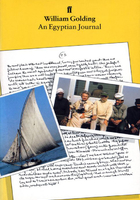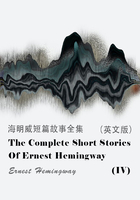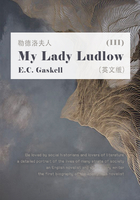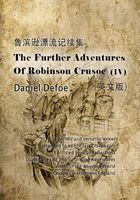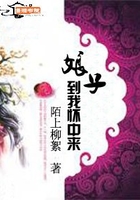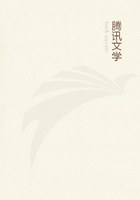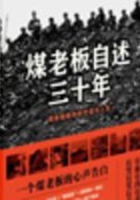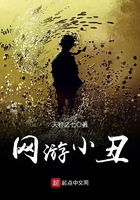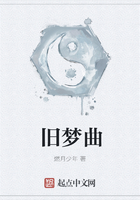Former Owners
My first trip to Estonia was two years earlier, in the summer of 1991. The streets were dusty in Tallinn that summer, the weather warm. I remember the anxiety of accidentally swallowing glass from a Soviet bottle of mineral water crumbling in my mouth, and the ubiquitous smell of wood smoke and brown coal, even in the heat. I remember wooden houses with flaking paint, quiet streets, shoddy high-rise areas, people waiting in flimsy bus shelters. I remember the silence, and the cats watching the flocks of pigeons lifting from the walls of the old city. People were waiting, it seemed, to see what would happen next.
My father had an Estonian secretary, Lydia Saarman, one of the many Estonian refugees in Sweden. She had put me in touch with a childhood friend, Veevi Kirschbaum. Veevi, a small, stout woman in her sixties, with wide-set blue eyes and a determined manner, came to meet me at my hotel. We walked back to her nearby flat, full of books and knickknacks, a gilded mirror, a polished table, and framed photographs. I had asked Lydia what to bring her, and she said that it was difficult, in fact I think almost impossible, to find coffee at that time, so I brought her some as a gift. Veevi took it into the little kitchen and was gone for a long time. Later I realised that she had no filter papers, and had to boil the coffee and let it settle. She gave me heavy, greasy cake, which I ate hungrily, and said to me sternly, "But first of all, now, my darling, I speak to you quite seriously: tomorrow you go and you have breakfast! And you ask them what time they have dinner!"
Veevi, then retired, had been in charge of supervising the production of goods for export: peat to Austria, Italy, and Belgium; briquettes to Finland; seat belts to Poland, which were tested in Prague and Paris; concert pianos, ski boots, bicycle helmets, and gardening tools for "capitalist states" like England. She found a tiny battered notebook recording the goods, and read to me from it, translating into English, which she spoke well, from the Estonian. She made the "export plan" for fourteen factories. Her superior at the Ministry of Production was Jewish, she said, "a Jew from Kiev, a very intelligent man like all Jews."
She herself was not Jewish, and I don't think that her husband was either, though he may have been. He had died of heart failure many years ago. His name, Kirschbaum, was the kind of German-sounding name that many Estonians took in the nineteenth century. Despite her position, she was not a communist. She had lost too much, but also the weakness of central targets and plans had been obvious to everyone for a long time.
"Why do you think we have such thick paper in the Soviet Union?" she said. "Central office in Moscow demanded that a certain factory produced a certain amount in tons, and so it was easier to produce heavier paper than to produce more paper!" The same was true for tins: the tin factories had targets of weight, which meant that the tins became absurdly heavy. The machine weights, too, she said, were about ten times their weight from those in the West: "Everything was very heavy!"
Despite those failures, and there were many, there was a constant emphasis on technological achievements and progress in the Soviet Union. By 1991 that particular form of modernity only remained in dusty Soviet tourist books sold in the provinces. I bought and read them compulsively: "It would be no exaggeration to say that Tallinn produced everything from industrial equipment to sewing needles. 40% of the gross output of the republic is produced by Tallinn's industries, which export their goods to 86 foreign countries." "Goods are constantly being carried to and fro from Latvia, Lithuania, Leningrad and Kaliningrad." What the Soviets aspired to-the bustle of modernity, constant building ("Her architects are constantly designing new projects and the building never comes to a halt in the city"), endless work projects, import, export, industry of all kinds-they never quite achieved, and what we aspire to, or at least what I aspired to-peace and quiet-they had in abundance. It was so quiet, so peaceful, so beguilingly old-fashioned. Going to Estonia felt like travelling back in time, but the similarities between their present and our past were incidental and deceptive, hiding the years of Soviet repression and modernity: the collectivisation and "rationalisation" of agriculture, and the heavy postwar industrialisation in the eastern part of the country.
After coffee, Veevi showed me her photo albums. There was her husband, dark and good-looking, and her wartime friends. "This was my dear friend. She went to Siberia. And this is the picture she sent back." There was a stamp-sized photograph stuck under the larger pre-war picture of a sturdy girl with glossy waved hair. The girl in the Siberian picture had poorer clothes and flat hair, a hesitant smile in a thin face.
"And did she come back?" I asked.
"Yes. Oh yes. But her father was shot."
Woman survivors of Stalinism, Veevi told me, now spoke on the radio, in a series entitled Unwritten Memories. They described people dying from diarrhea after eating rotting scraps of food, and labour camps around electricity stations, built by prisoners. Male prisoners worked for an average of three months before they died. Then more people were arrested. "So was the communist empire built," she said.
Veevi and her late husband were "former owners," and she was now reclaiming the building they had owned in the independence era, a 1930s block of flats with a bakery on the ground floor. In 1950 the Red Army had demobilised, and many flats in Tallinn were confiscated and given to veterans. Veevi and her husband lost their building, and their own flat, and spent the next sixteen years in a room of nine square meters. They hid the deeds to the building in a tin, which they buried in the ground. They didn't dare to request a bigger flat, because it might remind the authorities of their status as "former owners." She had no children, but Veevi never gave up hope that the building would one day belong to her again, and that independence would be restored to Estonia. She took me to see it the next day.
"You understand, Sigrid," she said, fixing me with her blue eyes, "in Estonia we say, 'My home is my castle.'"
I took a photo of her outside it, a small and determined figure in front of the 1930s white block, legs apart, chin up, thick glasses resting on her broad nose.
Like many Estonians, Veevi kept her political allegiance to liberal Britain, the formerly secret voice of the BBC World Service, after independence. Voice of America, she thought, was not as good. I felt then that the reality of contemporary Britain, and the West, was almost certain to disappoint her, and I think eventually it did. Veevi, at heart, was an idealist. She believed in freedom, and in high culture, and she was puzzled and dismayed by our cultural relativism, our consumerism, and our lack of ideals.
When I left later that week, she came with me in my rented car to the airport. We almost got lost, but then we saw the new Swedish Statoil petrol station by the airport. I returned the car, which took an inordinately long time. A gentle young woman puzzled over the rental form for at least half an hour, and when she deemed her detailed scrutiny of each entry to have been completed, she smiled shyly, and gave me a box. I was, it turned out, their first customer, and this was my present: a pale plastic doll with white hair dressed in an Estonian national costume. Veevi told me her name was Maja.
I came back in November 1991, a few months after the coup in Russia, and the Estonian parliament's Resolution on Immediate Independence, which had made Estonia an independent country. This time I travelled to Tallinn on the overnight ferry run by Est-line. Dizzy from a sleepless and nauseous night, I waited in the long queue to get through passport control. There were Swedish entrepreneurs (all men), some day-trippers, and many mysterious and rough men with pale faces, dirty jeans, and long, greasy hair. The Hotel Viru, where I was staying, was a collection point for the latter group. They hung out with the prostitutes and illegal currency dealers on the second floor, the sun falling through plate-glass windows onto blue clouds of smoke. Viru was the downmarket hotel for Westerners. There were several cheaper hotels for Easterners, and then there was the upmarket Western-style Hotel Palace.
The Red Army was still occupying the military bases then, and there were Soviet soldiers on the streets. Street signs were bilingual, and Russians in public jobs were not yet required to speak Estonian. One night I went to a concert of Beethoven and Mozart at the newly restored concert house performed by the Eesti Riiklik Sümfooniaorkester. The music was soothing; the concert house was beautiful, and as I listened I felt increasingly at home. At the intermission, however, when the entire audience formed itself into a silent train of people, tramping slowly round and round in a circle, neatly turning by the stairs, Estonia once again felt like a foreign country. I didn't join it. I looked, instead, at the framed photographs of conductors and musicians on the wall, and the ominous dates: Eduard Oja (1905–50), Evald Aav (1900–39), Adolf Vedro (1890–1944).
After the concert I walked back to the hotel through the rain. The streets were flooded and people hurried by with small and colourful umbrellas. There were few cars, I assumed because of the current petrol crisis. I had dinner in the hotel for 15 roubles, then about 15 pence. A young couple tried to exchange money with me-they would give me 55 roubles, not one or two, for a dollar, they said. They looked so Western that at first I took them for tourists trying to change dollars for roubles, but of course they were not. On the way back to my room I stopped to buy a bottle of mineral water in the bar, which turned out to be hard currency only. Thus my dinner cost 15 pence, and my bottle of sparkling water-not Western, I might add-cost a pound. Such was the currency discrepancy in 1991. The following summer, in 1992, the Estonian kroon was reintroduced, and the exchange rate was set at 10 roubles per kroon. People could exchange a maximum of 1,500 roubles. If you had, say, 1,000 roubles in your bank account, a reasonable sum by old Soviet standards, you could change it for 100 kroon, which in turn was worth about a dollar and a half.
There were two middle-aged Swedish men in that bar. One of them, heavy and plain, was talking to a glamorous young woman. The two men glared at each other, competing, perhaps, over the woman. They ordered drinks, and the barman stirred them with a studied pre-war flourish. The woman looked at me and smiled into her drink, a moment of complicity between us. None of us-the bartender, the prostitute, the men, or I-knew quite how to act in this new situation. The portals were opening to alternative futures, and closing to the past.
At 10:30 that night I had a crackly conversation with Veevi. She had made me promise to ring her before going to bed, because she was worried about the new criminality in Tallinn. There were one or two murders a week, she said, and rapes and muggings. There were gangs from Russian and the Caucasus. "They talk about the blue-eyed Estonians," she said, the naive Estonians they can mug and rob. "So, my darling, you must promise me, promise me when you come back from the concert that you ring me, anytime. First you must eat. Then you ring me." I tried, also, to call a friend in Sweden, but the number for the international operator was "unavailable." I plugged in the TV instead, and jumped back as sparks flew from the socket. Then I saw the disconnected wire, copper threads brittle and torn hanging uselessly from the back, and gave up.
A friend in England had put me in touch with someone he knew in Tallinn: Riina, a journalist and TV reporter. I met her at her office.
"Can you recognise the Russians on the street?" I asked her, thinking of my conversations with Veevi about Russian criminality.
"Yes, I think so," she said. "I think I do. But you see, my grandmother was Russian. So I could never be a right-wing radical nationalist."
Her Estonian grandmother, she then said, had been a friend of the war criminal Ain-Ervin Mere. He ran a concentration camp for the Germans. After the war he escaped to England under a death sentence. Mere, I found out later, was an obersturmbannführer in the Waffen SS, and the head of the Nazi Estonian security police, the Sicherheitspolizei, created in 1942. In 1961 he was condemned to death in the first Soviet Holocaust trials. The British authorities, however, did not extradite him, and he died in Leicester, aged sixty-six.
The 1961 Soviet trial charged Estonian collaborators with the murder of Jews and gypsies, focusing on atrocities near Kalevi-Liiva, the killing fields of the J?gala concentration camp in 1942–43. The trial was held in the auditorium of the Naval Officers Club in Tallinn. All four defendants were found guilty. Two of them, Ralf Gerrets, deputy commandant at the J?gala camp, and Jaan Viik, a guard at the camp, were convicted and executed. Viik was accused of throwing small children into the air and shooting them, a charge he did not deny. Camp Commandant Aleksander Laak was eventually found in Canada, and subsequently committed suicide.
Ain-Ervin Mere was also tried, and convicted in absentia. He had overseen the selection process of the Jews, who had been transported to Estonia from Berlin and the concentration camp Theresienstadt outside Prague. Once in Estonia, some of the men were selected for slave labour at the oil shale mines, and a very few of the women were sent for other slave labour work. A handful of women, having been sent around various camps, were eventually liberated at Bergen-Belsen. The majority, including all the elderly and all the children, were murdered. Most were shot, either by police or by camp guards.
There were further trials after that, and two other perpetrators were found: Ervin Viks, who had fled to Australia, and Karl Linnas, who had escaped to the United States. They were accused of taking part in the murder of twelve thousand Jews in the Tartu concentration camp. Australia and the United States refused extradition, Australia citing the lack of extradition treaties with the Soviet Union. Viks died, a free man, in Australia in 1983. Linnas was in fact eventually extradited from the United States in 1986, and died in a Soviet prison.
The Holocaust was horrific in Estonia. And no one that I met ever talked about it.
Later that evening, I tried ringing Ain Sarv, the editor of the contemporary Swedish Estonian magazine Ronor, based on the west coast. It was a very bad line. At that time local lines worked reasonably well, but the telephone lines across the country barely functioned. I heard, finally, a weak voice say, "Hallo?"
"Hallo," I said in Swedish. "Do you speak Swedish?"
She immediately hung up.
I had dinner with some Finnish aid workers at the hotel that night. They said they had heard that the Russian troops were leaving. You still saw them around town: young men, almost boys, in long grey coats, and their hats with the red star-hats you could already buy as souvenirs in Berlin. They were gradually leaving, though the last troops stayed until 1994.
The next morning I went to the travel bureau in the hotel to ask about trains to Haapsalu, the main town of western Estonia. A crowd of unfriendly and irritable people was pressing forward. The room was a fug of cigarette smoke. When I finally got to the desk, the woman escorted me into another room, where I was met by friendly and helpful people, who said that they could organise everything. This was the Western currency zone.
Haapsalu was the nearest town to my prospective field site. It had been a spick-and-span little coastal town in the 1930s, a summer spa where people came for the mineral mud baths. Now, the baths were long since gone, the paint on the beautiful wooden houses flaking and unkempt. There were broken windows everywhere and, strikingly, piles and piles of firewood, even outside the modern buildings. These were mostly grey concrete blocks, cracked and unpainted. The main street was wide and muddy, with many shops selling few things, and almost no cars. It was intensely cold.
I had gone by slow train from Tallinn, waved on by chubby women stationmasters at each little country station. My first sight of Haapsalu was a film scene, set in the nineteenth century. The film team, scruffy men in black caps, cheap cigarettes in mouths, themselves looked like actors in a Soviet film. They had been waiting for our train, which they now obscured with clouds of smoke, to look like a steam train. Over the flaking Estonian exit sign they had hung a new one, in German: AUSGANG. The camera rolled, and the actors exited, one by one.
Two years later I saw another film on a Tallinn street. This scene was of the Soviet era, with a shop window laid out exactly as I remembered them: a few artfully arranged cans of fish, and not much more. Fake snow on the ground. All the actors and members of the film crew must have remembered what those windows were like, with their handwritten signs: PIIMA EI OLE. "No milk." Or "No meat." Every language in the Soviet Union had a standard expression for "not available"; ei ole was the Estonian one. The very recent past seemed so long ago then, with Estonia saturated not only with 1970s cast-offs from the West, but also with all the new and techy markers of the future: mobile phones, laptops, shiny petrol stations with supermarkets, glossy food packaging and soft drinks-all so hard and shiny in the still grey post-Soviet world.
In Haapsalu, that cold November day in 1991, schoolchildren in woolly hats and mittens went by, eating vanilla ice cream. Everybody hurried on. I tried to talk to many of them, to see if I could find any Estonian Swedish contacts. After many unsuccessful encounters, I eventually found someone who was willing to talk and who was, also, married to an Estonian Swede. "There are not many Swedes left in Estonia now," she said, "and the children have all become Estonian." She smiled, revealing uneven brown teeth.
I eventually took the bus back to Tallinn, an impossibly crowded and very warm bus, that stopped at every village en route. A young woman, a self-appointed minder, walked with me from the tram to the hotel, so that I wouldn't lose my way. I thanked her profusely, and she nodded, smiled a secret smile, and melted back into the streets. In the hotel, I booked a flight back to Stockholm before ringing Veevi, as I had promised. I knew by then that she thought my capacity for planning was feeble, at best, so I expected a thorough conversation about logistics.
"Now, Sigrid," she began firmly. "Did you get your ticket already?"
"No, but I booked it," I said, feeling confident that my booking was solid, and that that might be the end of the matter. I had, after all, travelled widely across most continents, booking my own flights since I was seventeen.
"You booked it," she said thoughtfully. "And when will you get it?"
"The day I fly, at the airport."
"At the airport. They told you this?"
"Yes," I said patiently. "I spoke to the airline office, and they took my booking."
"They took your booking. Did they take your name?"
"Yes."
"They took your family name?"
"Yes."
"But then, Sigrid, I have such a feeling that you will have to be at the airport earlier to get your ticket."
"Yes, they told me I should be there by 2:40. The plane doesn't depart until 6:25."
"Ah," she said heavily. "Well, I am sorry for asking all these questions, but you see, to do anything here you have to control every step."
That evening she introduced me to Matti P?ts, the grandson of the former president, Konstantin P?ts. We travelled by tram to Mustam?e, the high-rise suburb of Tallinn, where he lived. Matti, a tall, heavily built man in his sixties, with blue eyes and cropped hair, opened the door. His wife hovered behind him, smiling nervously. Unlike Matti, she didn't speak English.
In 1940, following the Soviet annexation of Estonia, Konstantin P?ts and his whole family were arrested. Matti's uncle managed to escape to Sweden, but the rest of them were deported. Matti was seven years old. They were sent, he said, in the grand state Wagon-Lit from Estonia to Moscow, and on from Moscow in normal trains. His mother was imprisoned in a camp near Sverdlovsk (now Yekaterinburg). His father was deported to another camp, where he died. Matti and his brother were incarcerated in a camp for children of the deported near the Ural Mountains. There, the guards indoctrinated them in "Marxist-Leninist and Stalinist thought." Konstantin P?ts, they learnt, was a "traitor to the working people of Estonia." The townspeople sometimes threw bread or potatoes over the fence. They could see that the children were hungry, and suspected, rightly, that the guards stole their rations. "My friends who have not been there," he said, "they cannot imagine what it is like to be hungry. To be weak. To have nothing." His brother, weaker than him, starved to death in that camp, officially described as an "orphanage."
He showed me a photograph of himself taken by the town photographer just before he was freed in 1946. He was twelve then, a thin boy with a shaved head, dressed in an old uniform, much too big for him. His mother was liberated in the same year, and the two of them returned to Estonia. He hadn't been allowed to speak Estonian in the orphanage, so he could hardly remember his own language. In 1950 his mother was deported again, as a "socially dangerous person." This time she did not survive, and Matti was on his own.
President P?ts died in 1956 in a special mental hospital in the Kalinin (now Tver) oblast. On 21 October 1990 he was given a state funeral in Tallinn. The streets were packed, and Prime Minister Edgar Savisaar made a speech. Matti also spoke, numb with cold, but warmed up, he said, by the television lights. The uncle who fled to Sweden settled outside Arl?v, a small town in the south, where he worked as a gardener. Matti tried to contact him when he was first allowed to visit Stockholm, but with no success. "He was paralysed with fear," he said.
The P?ts family gave us dinner that evening: boiled sausage, cold carrots and peas mixed in a white sauce, with side dishes of potatoes and pumpkin. They grew their own vegetables in a small plot. Veevi, sipping the sweet white wine, was becoming increasingly animated and determined, "like the Queen of England," Matti said teasingly. "I knew her husband very well, and when she would get that manner we used to tell her she was acting like the Queen of England." Veevi laughed, and even Matti's wife smiled.
She smiled and nodded to me, and I smiled and nodded back. Then she brought out the photo albums. I politely looked through album after album, until I finally asked them about the failed communist coup in Russia, which had taken place less than three months before I arrived, 19–21 August 1991. President Gorbachev had been kept a prisoner at his dacha by the KGB, and the lines of communication to Moscow cut. The putsch did not succeed, but it might have, in which case the Soviet Union, in perhaps a slightly different form, would have survived. What had it been like in Estonia? "Well," said Matti. "I was in Helsinki at the time. I was not going to go back. I was not going to live through it once more."
Veevi, she said, had gone out to the telephone tower where people gathered in response to Prime Minister Savisaar's call for help on the radio. The telephone tower was the centre of communications, and hundreds of unarmed people gathered there to defend it against the coming Russian tanks. The radio solemnly announced the progress of the tanks: 200 kilometers from Tallinn; 175 kilometers from Tallinn; 150 kilometers from Tallinn… The people built barricades and stood in groups, waiting. Veevi was with a group of women. At about three in the morning, she said, a young Estonian, "a man of the people, a blue-eyed man with such an open, honest face, came up to us and said: 'Women of Estonia! Go home and protect our homes! Protect yourselves so that the Estonian people may survive!'" She went home, then, but continued to listen to the radio. Savisaar called again on the men of Estonia to come out to the telephone tower, and soon afterwards she heard cars hooting everywhere-the people who had cars were offering lifts to those who didn't. The summer night turned to dawn, and the tanks, halted outside Tallinn, never arrived. The Russian coup failed, and three days later, on 24 August 1991, Russia officially recognised the independence of Estonia. On 6 September the Soviet Union, officially still in existence, did too.
Before I left Tallinn that November, Veevi and a friend of hers took me for a drive. We drove to the Summer Palace in her friend's rattling old car, and on to the Forest Cemetery, and the Song Festival Amphitheatre. We walked around the cemetery and talked about what people were like when they came back from the camps. Were they broken by their experiences? "No! You see, Sigrid, the best people were deported, and the ones who were hopeful survived. The pessimists all died."
We went on to a mostly Russian high-rise area. The houses were badly built and cracking, and the road too strangely wide to lead anywhere except back. We stopped by the sea. There was a cold wind, and the water was as grey as the sky. The restaurant where we parked the car was empty. November, as everyone had told me, was indeed the low season in this most seasonal of countries.

